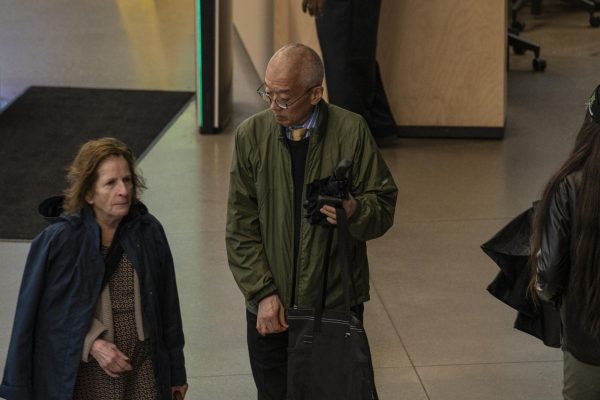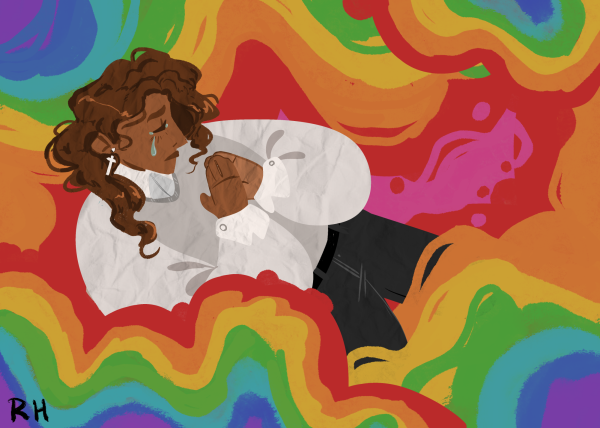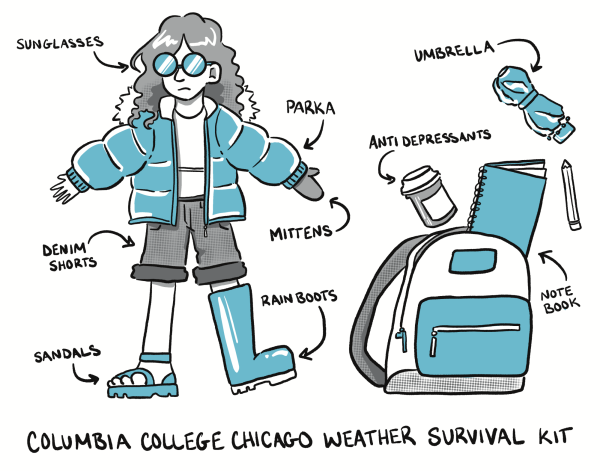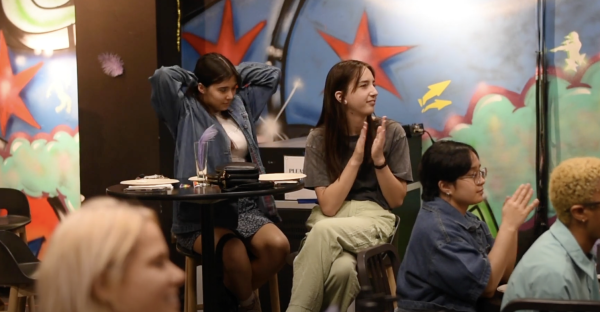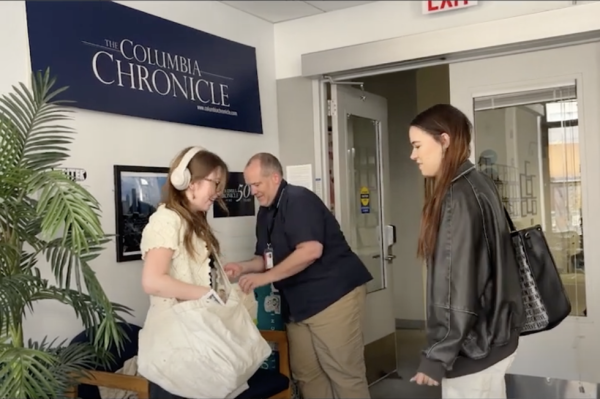Sleater-Kinney: Ready to rock
November 2, 1998
Saturday night. Date night. Wrigleyville. Pretty girls and handsome guys holding hands, drifting in and out of cute little yuppie bars. Inside the Metro, the crowd was quietly chatting and the whole place was covered in shiny gold foil. Everything was civilized and passionless. Corin Tucker, Sleater-Kinney’s leader, walked on stage wearing a burgundy skirt and a pretty little necklace. She avoided looking at the crowd and she seemed uncomfortable. She knelt down very ladylike, plugged her guitar into her amp and took a drink of her bottled water.
A few minutes later the house lights went down and the stage lit up. Tucker closed her eyes as Carrie Brownstein’s guitar ripped into the opening notes of “I’m Not Waiting.” Then, Tucker was ready, as uninhibited as a fiteen-year-old girl with her bedroom door closed and the stereo blasting. She opened her eyes, chanting “I’m not waiting ‘til I grow up, I’m not waiting ‘til I throw up to be a woman. Screams of recognition came from the crowd and Tucker’s chainsaw yelp of a voice quickened its pace, reaching a frantic high at the end of the song’s chorus: “your words are sticky, stupid, running down my legs.” In a matter of minutes, three girls and two guitars had transformed peaceful Wrigleyville into the site of a punishing, ear-splitting onslaught.
Simply put, Sleater-Kinney’s music is an attack. There is no bass guitar; bass would be too comforting. The dual lead guitars of Brownstein and Tucker shred through Janet Weiss’ rapid-fire drumming and Tucker’s shrill voice, filled with warnings to possible lovers and advice to her fellow women, somehow manages to be the band’s most dangerous weapon. Since Sleater-Kinney’s music is so tight and so focused, Tucker is able to take as many vocal risks as she wants. Tucker has a good conventional singing voice when she chooses to use it, but she favors the howling wail that makes her so distinctive. The sold out crowd hung on Tucker’s every word throughout the show, relishing the moments when her voice would reach it’s breaking point on a punishing, machine-gun chorus.
Sleater-Kinney’s last record, “Dig Me Out,” was one of 1997’s best. They managed to retain the passion displayed on their second album, “Call The Doctor,” and expand things musically. The startling guitar play and inventive melodies on songs like “Words and Guitar” and “Little Babies” elevated Sleater-Kinney from a riot girl band into the rarest of all things a band that matters.
The late 90s will be remembered as the “Lilith Fair” years. Just watch VH-1 for a few minutes and they’ll tell you all about “Women in Rock.” Sarah McLachlan, Jewel, Alanis Morissette and Fiona Apple are women selling records today. Tori Amos and Ani DiFranco have provided some of the most passionate, inventive music of the 90s. However, they are all primarily vocalists.
Saturday night at Metro, Sleater-Kinney proved why they are more important to the future of rock than all the VH-1 women combined. They can plug in their electric guitars and blow away everything in sight. They’re a female band that provides a tight, emotional assault more powerful than most of their male peers, and that’s a first.


